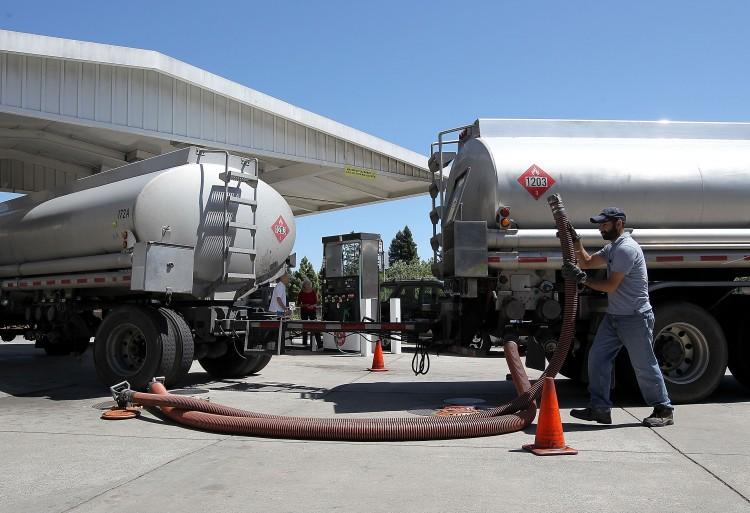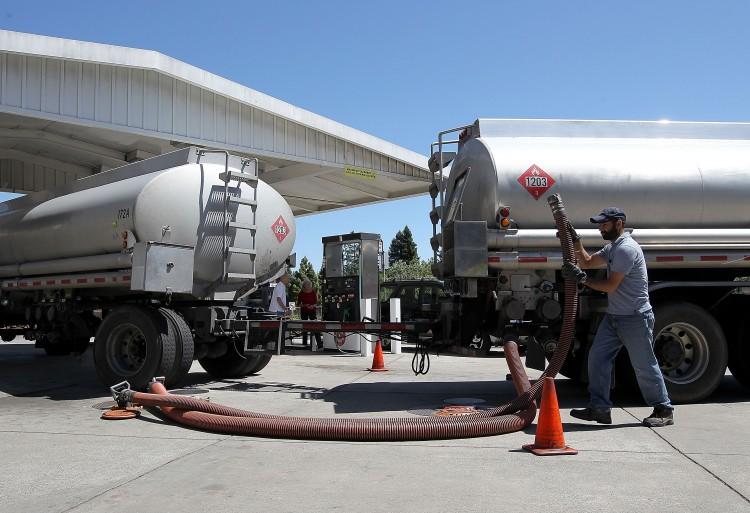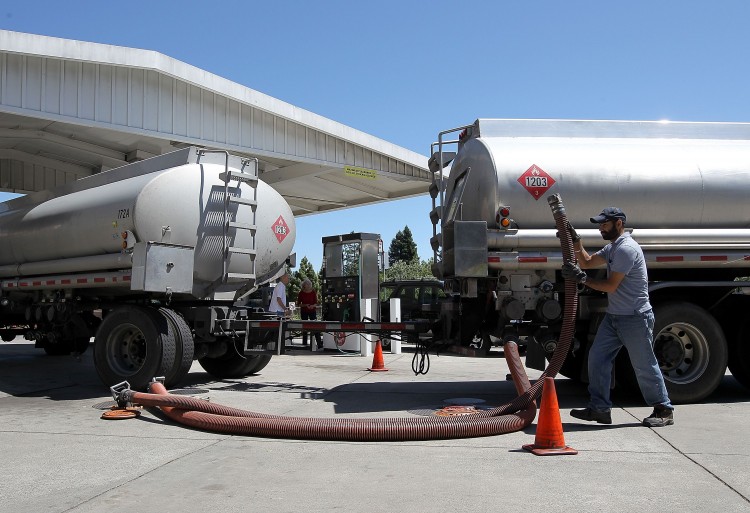Clean Energy Funding Targets Idling Engines
A B.C. researcher has received funding to develop systems to reduce fuel consumption and emissions in long-haul trucks.

A truck driver delivers fuel to a gas station. A Simon Fraser University research team is developing technology that will reduce fuel consumption and emissions in service vehicles and long-haul trucks. Justin Sullivan/Getty Images
|Updated:





